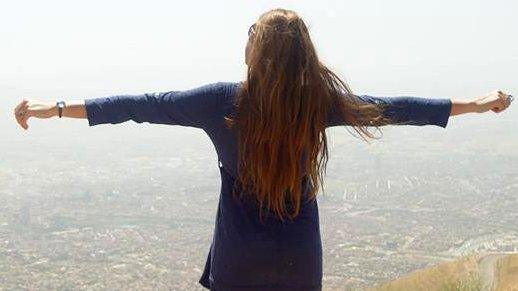100 Women 2014: From conflict zones to the classroom
- Published
BBC journalists Shaimaa Khalil and Rupa Jha hosted the inaugural 100 Women event in October 2013. On the eve of the second event, they look back at the past year and pick out their highlights from this year's coverage.
Shaimaa Khalil, Islamabad correspondent, BBC News
"Misha, why did you take off your hijab?" Misha is the nickname my five-year-old niece Danya has chosen for me.
The hijab she is referring to is the headscarf I no longer wear. She asked the question on the day I was visiting my mum and my sister and making my first appearance to family without the hijab.
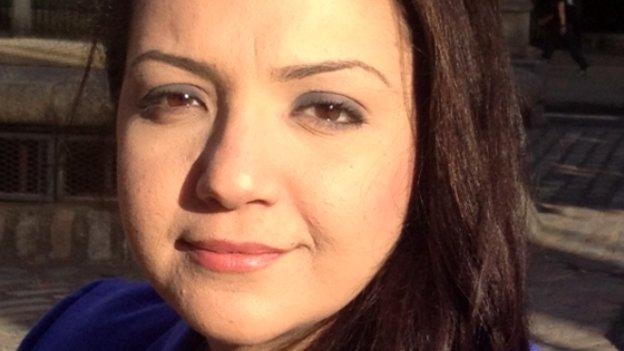
How do you explain an important decision like that to a child without getting into complicated discussions about religion, tradition and social pressures?
"Choice, Doodi," I finally said. "Remember when your mum said you can choose what you wear to go out? You can choose your friends. I chose to not wear the hijab any more."
The discussion went on for a while and I realised I was no longer talking to my niece about how I looked, but about something much more profound.
Last year's 100 Women season ended with Messages to my granddaughter, a video montage filmed on the day of the BBC's event. There were many inspiring messages Mine would be what I told my niece that day - the importance of choice.
'Just like her'
One hundred remarkable women from around the world came together in 2013 under one roof and started many discussions, some of which are still ongoing.
I'm now based in Pakistan as the BBC's correspondent. A few weeks ago I was at a girl's school when Malala Yousafzai, the education activist who was shot by the Taliban, won the Nobel Peace Prize.
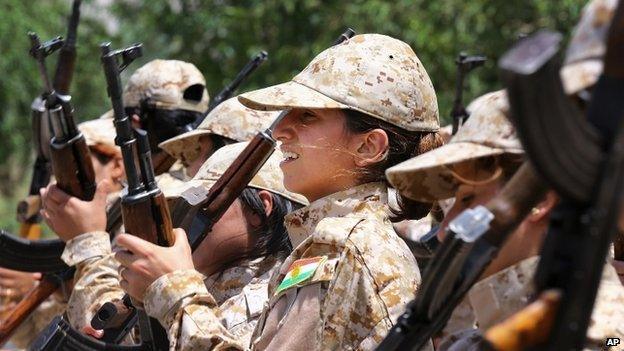
One Peshmerga soldier told the BBC she was "not afraid" of fighting Islamic State militants
A 12-year-old student told me: "When I see her on TV, I just want to be like her."
It was a great achievement for the young activist, but for girls education is still a struggle, sometimes one of life and death - not just in Pakistan but in many countries.
And women's bravery carries on well past school age. Some are in the battlefield as we speak.
In Iraqi Kurdistan I met a group of Pershmerga, female fighters who have picked up arms and joined their male colleagues on the frontline to fight Islamic State militants.
Mother-of-two Awas Tawfiq told me: "I am not afraid. I know I will be defending my land. I am very excited to go."
This year 100 Women is returning to the BBC, external. There are many stories of courageous women we want to share with you: stories from the home, the classroom, and from work or conflict zones.
I can't wait for the discussions to start.

Rupa Jha, BBC Hindi, Delhi
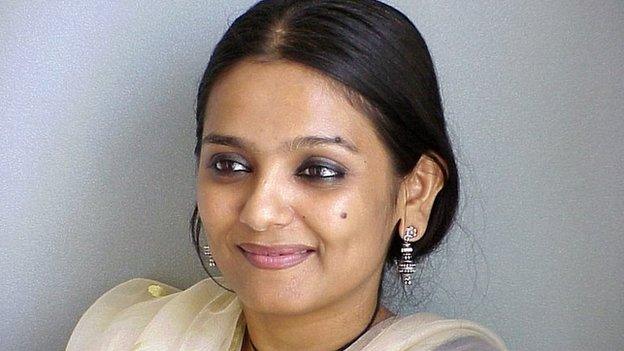
When I heard the news in India on the morning of 27 May, I thought - so what is new? How many more stories am I going to hear of violence against women?
This time, two young teenage girls were reportedly brutally gang-raped and then hanged in Uttar Pradesh as they wandered around in the dark because there were no toilets in their village.
It disturbed me, but it disturbed me more because the story seemed so normal, so routine - something I had become completely used to.
But then came the video, and the image of two tiny bodies wearing bright orange and green traditional clothes, dangling from the branches of a big, peaceful tree.
'Forced outside'
For me, that became the defining image of India this year.
There was outrage - and the world noticed. Reports since have said there was no rape, but the situation reported at the time is a real problem in India.
Around 600 million people in the country are forced to defecate outside. The UN has reported it is common for females in this situation to be harassed, physically assaulted and raped.
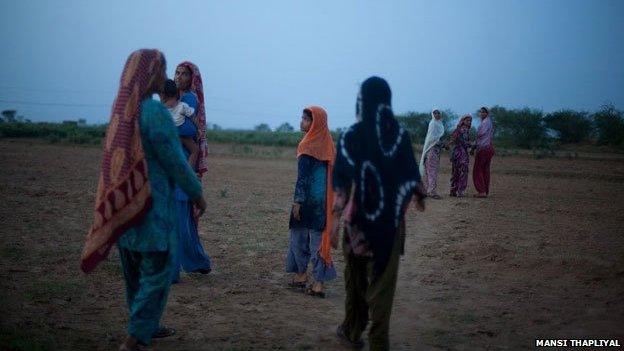
The UN said it is common for women to be attacked when they are looking for a place to go to the toilet
Following this case, new Prime Minister Narendra Modi announced every school should have separate toilets for girls and that building toilets should take priority over building temples.
I just hope this does not end up being another case of political rhetoric. I look forward to India truly taking such a basic issue seriously and spending proper money on it.
Meanwhile, for this year's 100 Women, I am really excited about one project that focuses on another basic necessity.
We will be seeing and hearing about the lives of women in conflict zones through their struggle to provide meals for the family.
It will symbolise the way women struggle to keep the family intact and functioning, even under the most extreme conditions and bring a human face to a story that can otherwise be rather one-dimensional.
- Published27 June 2014
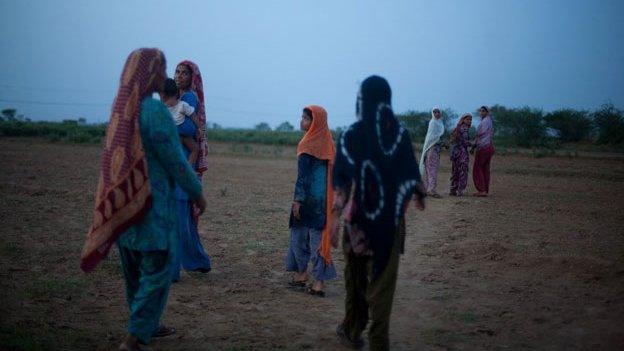
- Published31 January 2013
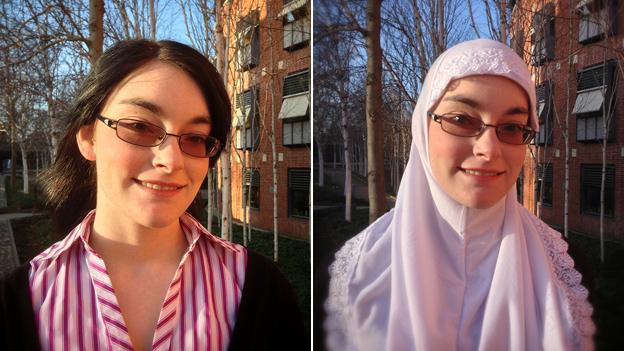
- Published12 May 2014
